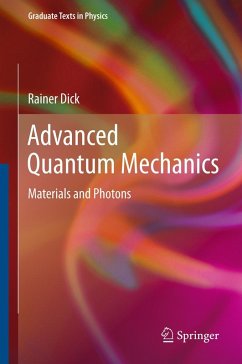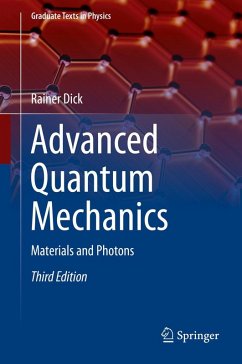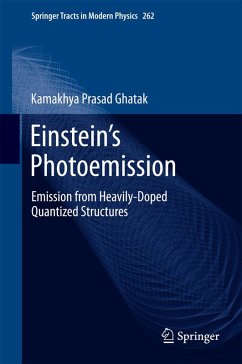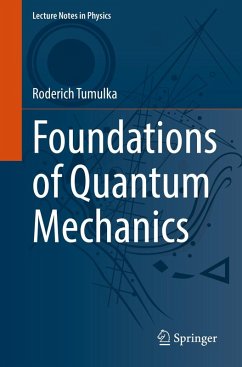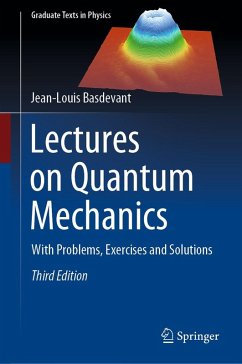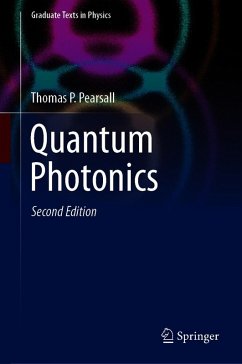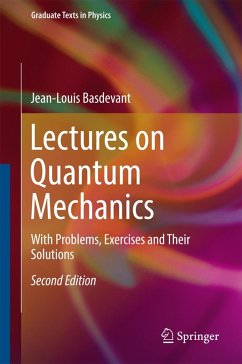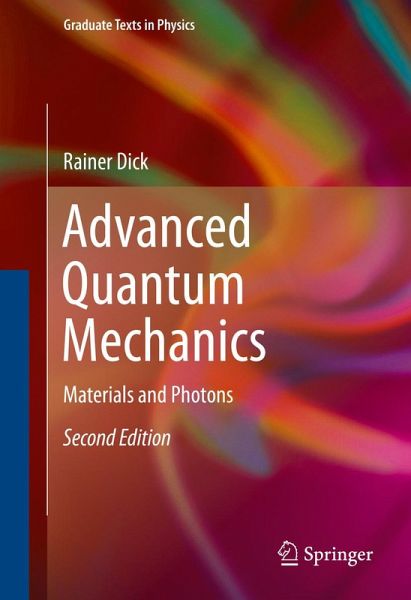
Advanced Quantum Mechanics (eBook, PDF)
Materials and Photons
Versandkostenfrei!
Sofort per Download lieferbar
56,95 €
inkl. MwSt.
Weitere Ausgaben:

PAYBACK Punkte
28 °P sammeln!
In this updated and expanded second edition of a well-received and invaluable textbook, Prof. Dick emphasizes the importance of advanced quantum mechanics for materials science and all experimental techniques which employ photon absorption, emission, or scattering. Important aspects of introductory quantum mechanics are covered in the first seven chapters to make the subject self-contained and accessible for a wide audience. Advanced Quantum Mechanics, Materials and Photons can therefore be used for advanced undergraduate courses and introductory graduate courses which are targeted towards stu...
In this updated and expanded second edition of a well-received and invaluable textbook, Prof. Dick emphasizes the importance of advanced quantum mechanics for materials science and all experimental techniques which employ photon absorption, emission, or scattering. Important aspects of introductory quantum mechanics are covered in the first seven chapters to make the subject self-contained and accessible for a wide audience. Advanced Quantum Mechanics, Materials and Photons can therefore be used for advanced undergraduate courses and introductory graduate courses which are targeted towards students with diverse academic backgrounds from the Natural Sciences or Engineering. To enhance this inclusive aspect of making the subject as accessible as possible Appendices A and B also provide introductions to Lagrangian mechanics and the covariant formulation of electrodynamics.
This second edition includes an additional 62 new problems as well as expanded sectionson relativistic quantum fields and applications of quantum electrodynamics. Other special features include an introduction to Lagrangian field theory and an integrated discussion of transition amplitudes with discrete or continuous initial or final states. Once students have acquired an understanding of basic quantum mechanics and classical field theory, canonical field quantization is easy. Furthermore, the integrated discussion of transition amplitudes naturally leads to the notions of transition probabilities, decay rates, absorption cross sections and scattering cross sections, which are important for all experimental techniques that use photon probes.
This second edition includes an additional 62 new problems as well as expanded sectionson relativistic quantum fields and applications of quantum electrodynamics. Other special features include an introduction to Lagrangian field theory and an integrated discussion of transition amplitudes with discrete or continuous initial or final states. Once students have acquired an understanding of basic quantum mechanics and classical field theory, canonical field quantization is easy. Furthermore, the integrated discussion of transition amplitudes naturally leads to the notions of transition probabilities, decay rates, absorption cross sections and scattering cross sections, which are important for all experimental techniques that use photon probes.
Dieser Download kann aus rechtlichen Gründen nur mit Rechnungsadresse in A, B, BG, CY, CZ, D, DK, EW, E, FIN, F, GR, HR, H, IRL, I, LT, L, LR, M, NL, PL, P, R, S, SLO, SK ausgeliefert werden.



